Advertisement
Poll: Most Small Businesses In Mass. Have Lost At Least 25% Of Their Income
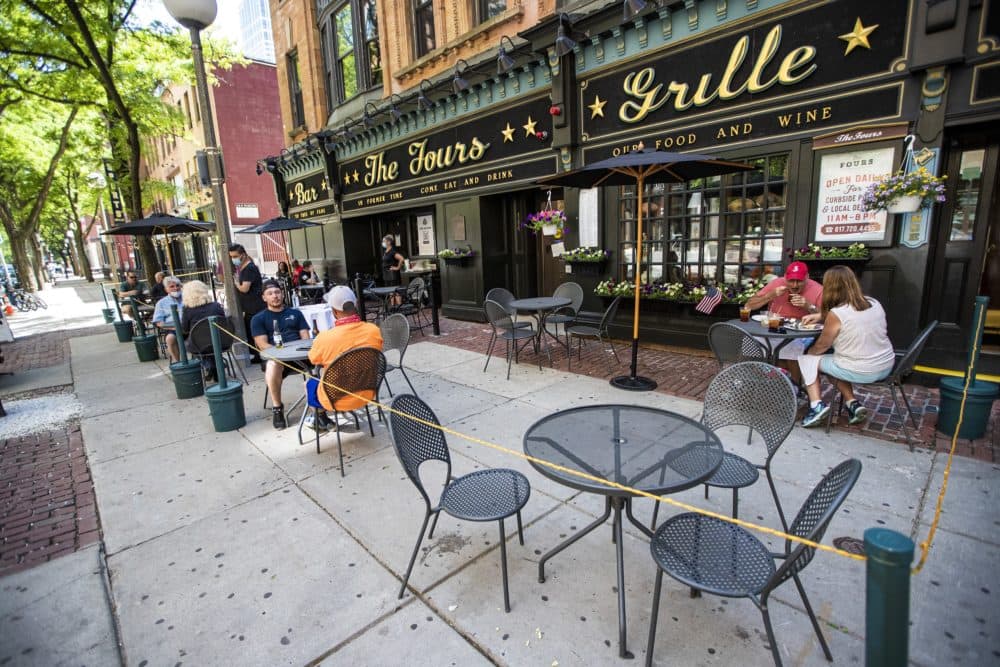
Most small businesses in Massachusetts say they've lost at least a quarter of their revenue this year, and only about a third have been able to fully reopen, according to a new poll by the MassINC Polling Group (topline, crosstabs).
The poll, conducted at the end of last month through mid-July, surveyed 1,868 small businesses (defined as having fewer than 500 employees). The findings show that while many small businesses have been able to partially reopen during the pandemic, these companies likely face a tough road ahead.
According to the poll, 44% of small businesses lost at least half of their revenue and 20% lost at least a quarter of their revenue during the first half of the year compared to the same time period last year.
The challenges for small businesses are worse for certain sectors, according to Steve Koczela of the MassINC Polling Group.
"Right now, the businesses that need to bring people in — that need to have customers on their premises to really be successful and do what they normally would be doing — those are the ones that are hurting the most," Koczela said.
Those types of businesses include restaurants, retailers and beauty services.
For example, the poll found nearly half of small businesses — 46% — have laid off or furloughed employees. But that figure was highest for restaurants — 77% said they have laid off or furloughed workers. The poll found restaurants and beauty businesses also had the biggest revenue losses — more than 60% the first half of this year compared to the same time last year.
These businesses were also more likely to have missed paying rent or other bills. More than half of restaurants and beauty businesses said they couldn't pay bills, the poll found.
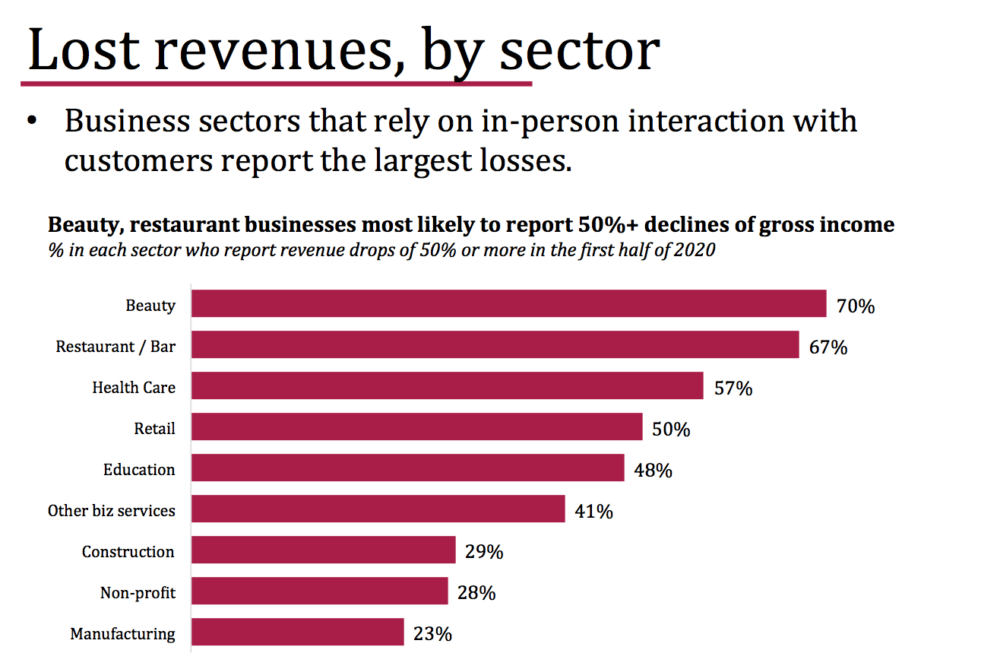
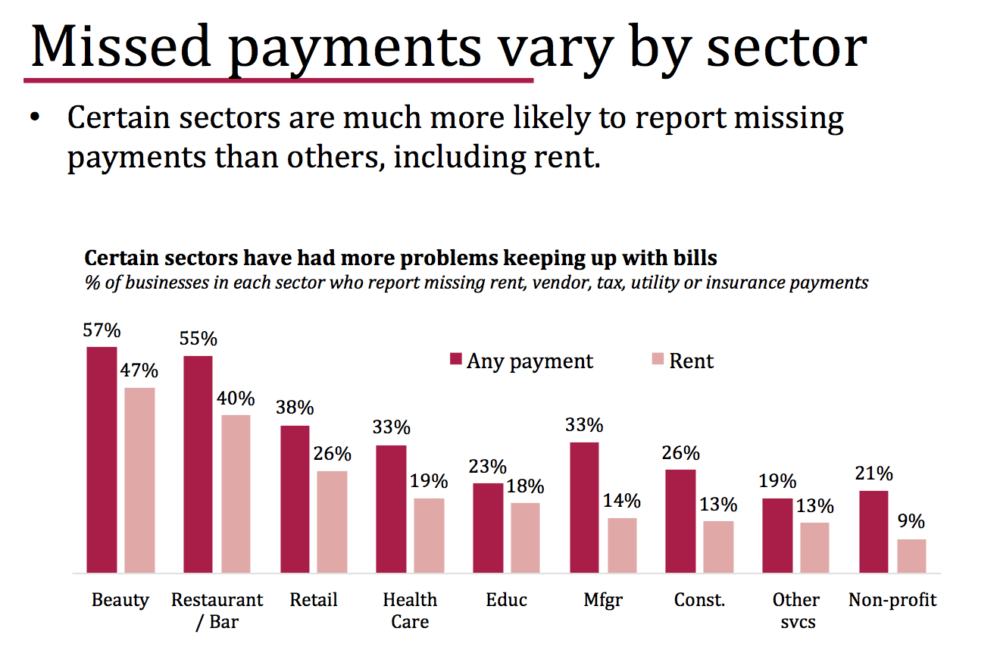
These struggles suggest that the potential wave of evictions could affect commercial properties as well as residential properties, according to Koczela.
"That's another element of what could happen to cities and towns all across Massachusetts because of the payments that businesses are struggling to make," Koczela said.
It's worth noting that many of these businesses were not allowed to reopen until later stages of the state's reopening plan.
The MassINC poll also found that the smallest businesses in the state are hurting the most. For example, companies that brought in less than $100,000 in revenue last year were more likely to report that they had lost at least half their revenue this year than companies with larger revenues.
Koczela said the losses felt by the smallest companies could exacerbate inequities as the state continues to reopen and recover since businesses owned by women and people of color are often smaller.
For example, the poll noted that businesses owned by people of color were more likely to report not being able to pay bills.
The poll also found that businesses owned by people of color were less likely to apply for the Payroll Protection Program loans. Koczela said, some of the smallest businesses, such as those with only one person, may have pursued unemployment or other benefits instead. Still, the poll found that businesses owned by people of color that did apply for PPP loans were less likely to receive the amount they requested than white business owners.
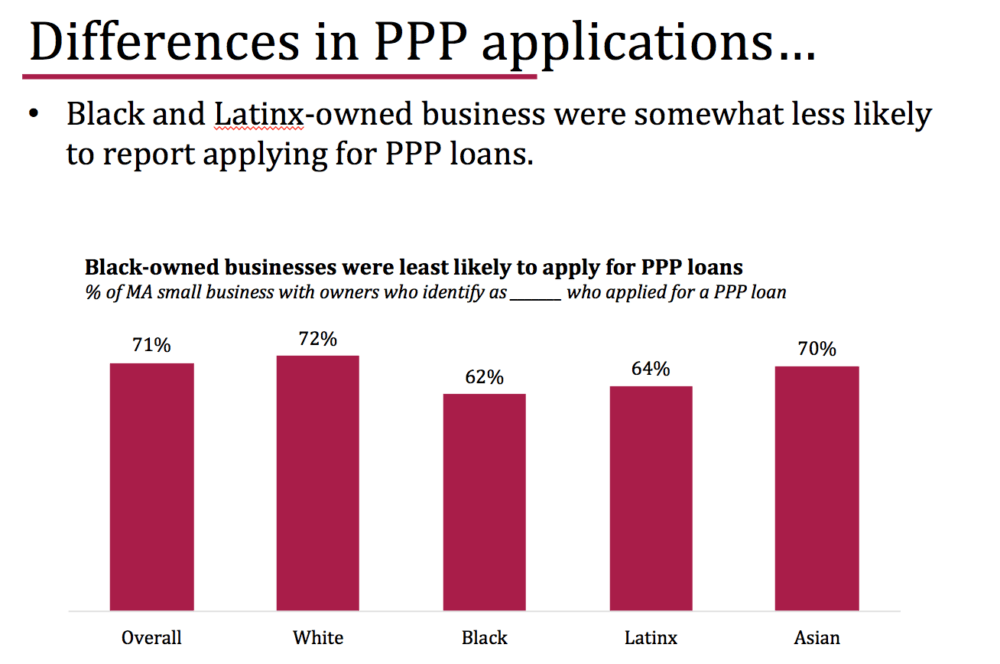
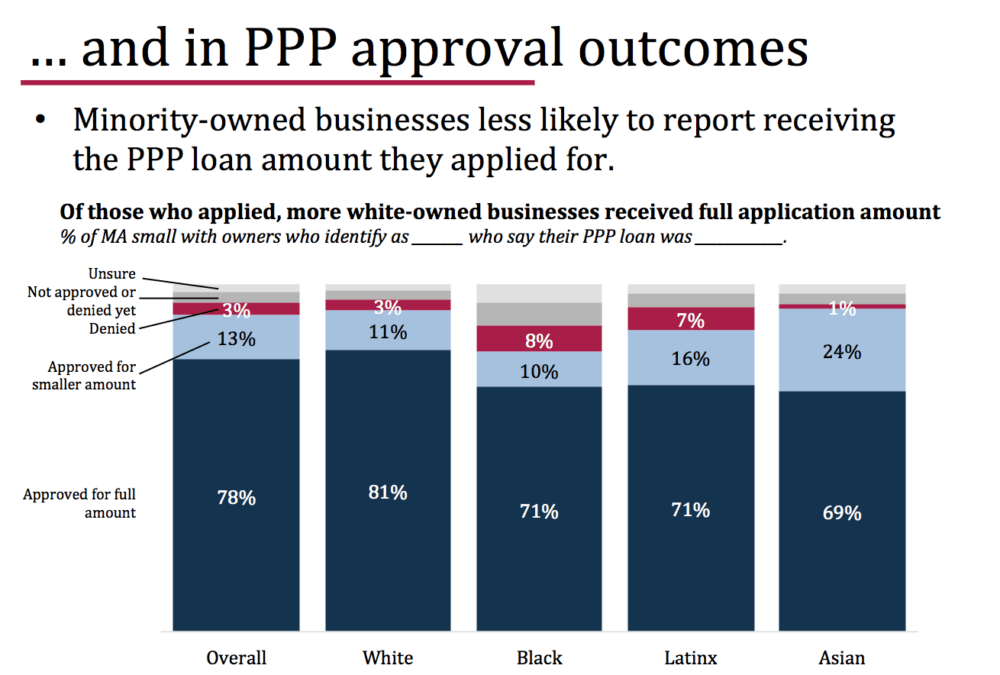
The poll also found that 29% of businesses report having trouble getting employees to come back. The most common perception among business owners is that workers won't return because they make more on unemployment, though nearly half said workers are afraid of infection and a third said workers lack childcare.
As far as the road ahead, nearly two-thirds of businesses said they need access to grants and more than half said they need to find new revenue sources. The larger companies tend to want help with the PPP loan forgiveness process, while the smallest companies want help boosting their business profile, Koczela said.
"What they need is help with digital marketing. They need help with selling online. They need help with social media," Koczela said. "All the things that you're a small storefront on Main Street may not have ever contemplated before — but now in this time when that's such a big part of how businesses are operating — they suddenly do find that they need that."
